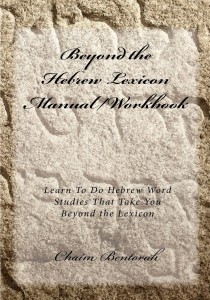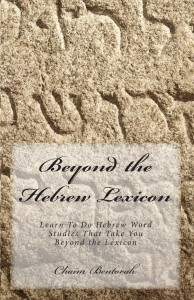Ezekiel 18:31 “Cast away from you all your transgressions, whereby you have transgressed; and make you a new heart and a new spirit; for why will ye die, O House of Israel?”
I don’t know about you but there are certain transgressions that I keep casting away and then like I am fly fishing I keep reeling it back it. It is just down right plain monotonous. Why are we commanded to cast away our transgressions when God knows that we no sooner cast it away than we start to run after it shouting, “Wait, a minute, I still want a piece of that.” I decided to take a closer look at this word cast as I found myself reeling in some old transgression this morning to give it another go. I stopped myself in the middle of my transgression and cried out to God, “What am I doing, God why you let me do these you don’t like me doing, I’ve asked you million times to make me quit.”
The first thing I noticed about this word cast which is shalak in the Hebrew is that it is in a Hiphal imperative form. It is both a causative and a command. As an imperative, God is commanding us to cast (banish, abandon) our transgressions. But being in a Hiphil form He is going to cause it to take place. In other words He will fill us with such disgust over our transgressions that we are caused to cast them away. The very fact that I take my transgressions and toss them away, shows that God is answering my praying. The very fact that I immediately start to reel them back is my flesh is saying, “No you don’t either.” I don’t think I am alone with this problem.
I noticed that two days after the release of our new Word Study Manual/Workbook Beyond the Lexicon it shot up to a number one Best Seller on Amazon in the Bible Translation category. That tells me that many of you reading this now own this do it yourself Hebrew Word study manual. For those that do I challenge you to open up to Lesson 3 page 25 and unlock the built in commentary for the word shalak (cast). Ask yourself, “Does this word for cast secretly tell me how I can cast off my transgressions?” Then begin translating letter by letter. Let me walk you through it with my own personal revelation, but don’t be satisfied with my conclusion, you dial up your own combination of meanings behind the letters and let the Spirit of God give you your own personal revelation.
The first letter to shalak (cast) is the letter Shin. I spin the dial and choose one of the meanings for the letter Shin which is the power of God. The next letter is the Lamed which I feel led to choose the word prayer. The last letter is the Final Kap and for that letter I choose the meaning of emptying your heart. Thus, for me the built in commentary on the word shalak (cast) is that it is the power of God (Shin) through prayer (Lamed) that our transgressions are emptied from our hearts (Final Kap). When I cast away my transgressions I am doing it inprayer. As I continue in prayer and communion with God the last thing I am going to do is to reel that transgression in because this communion I am experience with God is just so wonderful, I don’t want anything to interfere and that old transgression is the very thing to interfere. When I stop communing with God I seek to substitute that void with that old transgression.
If you are following Lesson 2 in the manual you will be looking at the Interlinear and you will notice that the phrase, all your transgressions is preceded with an Aleph Taw or eth. This is the sign that the wordtransgression is the direct object of shalak (cast). The sages teach that the Aleph is the first letter of the Alphabet and the Taw is the last letter, the beginning and the end. Jesus said that He is the beginning at the end. You are casting all your transgressions on Jesus and He is putting them on the cross.
But let’s take a closer look at this word transgression which is pasa.’ For those who purchased the Chaim Bentorah’s decoder badge or Work book you will have looked up this word pasa’ in the lexicon and discovered it means to rebel, sin, and/or offend. Now meditate on that and drill down to the common root. What do all these words have in common? They are talking about things that wounds the heart of God and the Holy Spirit is letting you know this with your conscious. Transgressions are a willful rebelling against the power of God speaking in words and actions your anger, lust and jealousy. These are not just the transgressions of the addict or the obvious sinners. This applies to all of us who feel a sudden surge of jealous, or lust or anger. Note the passage continues by saying, which we have transgressed in them. That sounds pretty redundant doesn’t it, really monotonous to say the transgressions we transgressed in them? That word for in them in Hebrew is bamand it is important.” In other words they were not a part of us to begin with, we walked into them. Years ago I recall discussing this with a student from Charis Bible College who explained it this way: “It is not referring to the sin nature that is in us. These are sins or mud holes that our sin nature is driving us to jump into.”
Now as to why we must cast off all transgressions note that the verse says, Make you a new heart. Now how can we make ourselves a new heart? Well if you look at the syntax you will find that it is the Casting away of all your transgressions that will make you a new heart. The word make is ’ashah. How do we make or create a new heart? Ok gang back to Chapter 3, the word is spelled Ayin which means deep spiritual discernment andinsight, Shin, once again I choose the power of God and Hei which is the presence of God. Through our spiritual insight in recognizing our transgressions, the power of God will change our heart so that it may be emptied of all its transgressions and filled with the presence of God. This is not casting off our sin nature, God deals with that on another level, these are the sins resulting from our sin nature.
It also says we will have a new spirit. This is a play on words chadash rauch. This is very close to chadosh rauch or Holy Spirit. The word rauch means spirit but it also means a pleasant scent. Where our hearts were once a stench in the nostrils of God, it will become a sweet scent to the nostrils of God through the cleansing work of Jesus Christ through whose divine power, our transgressions are emptied from our heart and then filled with the Holy Spirit – presence of God.
Finally, a new heart. The word heart is lev. It is spelled Lamed Beth and is where our English word, love comes from. When God cleanses our heart, it becomes love. As a rabbi once told me, the very last letter of Torah (Old Testament) is a Lamed and the first letter is a Beth. Together they make the word lev or heart, for with Torah we find the Love of God as well as the love of fellow man. But why does this combination appear only reversed? Because this love can only be fully created after we have studied the entire Word of God and we allow the Word of God to complete love in us.
You know I find that after having spent three hours studying the Word of God this morning I am just filled with His love and presence of God such that I have just cast away my transgression as well as the fishing rod and reel because after studying the Word of God I am filled with His love and I have no desire to reel that transgression in.
Don’t forget to check out our new manual and companion book…Already AMAZON BEST SELLERS!
Beyond the Hebrew Lexicon Manual/Workbook: Learn To Do Hebrew Word Studies That Take You Beyond the Lexicon
This is a user-friendly companion workbook that has fill in the answer exercises that will walk you through the steps needed to do your own Biblical Hebrew word studies enabling to drill down into the very heart, soul and core of Hebrew scripture.
Beyond the Hebrew Lexicon: Learn To Do Hebrew Word Studies That Take You Beyond the Lexicon
This book is written for those who want to find a deeper meaning to Biblical Hebrew words. It will give guidelines on how to drill down into the very heart, soul and core of Hebrew scripture.










Recent Comments